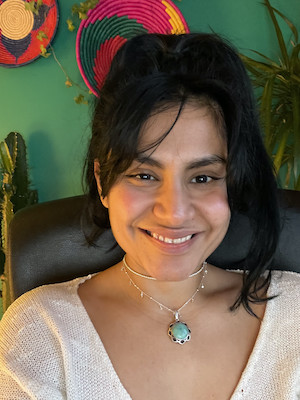FOSS Backstage 2022 in Berlin
Posted on 8 June 2022
FOSS Backstage 2022 in Berlin

By SSI Fellow Yadira Sanchez.
FOSS Backstage was a two day conference in March dedicated to everything related to Free and Open Source Software (OSS) governance and open collaboration. I attended this conference as a first timer into Community, Management & Compliance in Open Source Development. As an interdisciplinary researcher I was very intrigued to learn more from a wide network of backgrounds and community members interested in free and open source. It was fascinating to see the various ways in which communities look at open source and engage with it.
I have a passion for co-developing human-centred computing with rural communities in Mexico1 and was intrigued to see the many layers and processes that go within open source development. What I wanted to accomplish from attending this conference was a deeper understanding of how to bring together knowledge and practices from across industries, including academia, private software providers, public governance and most importantly how these can complement or aid citizen science and communitarian open source practices.
One of my favourite sessions was “Mentorship as a Pathway to Open-Source Project Sustainability” by Regina Nkemchor Adejo. Regina spoke of the role of mentorship to open-source project sustainability, how it has been downplayed for a while now and how through mentoring, newcomers to OSS projects acquire essential technical, social, and organisational skills relevant to a project's life span2.
Another absolute gem session for me was a very engaging talk by Thomas Fricke on “Log4Shell - The Open Source World on Fire or Why Open Source Security depends on the Funding of Software Maintenance” in which they raised calls for maintaining the maintainers of open source software, many of whom are close to burnout. Thomas engaged us with the Log4Shell bug case in 2021 and raised questions around preventing cases like this from happening, the urgent need to support open source projects and those who maintain such projects; bringing to our attention one proposal: The Sovereign Tech Fund.
On day 2 I dared to participate in the FOSS live podcast which will be released on May 20th in episode #121. It was a great experience talking to Richard Littauer, host and organiser of the Sustain podcast. I can say with enthusiasm that it was a very engaging conversation so I thank Richard for asking such thought provoking questions.
My favourite question and toughest personally was something along these lines: “when speaking and advocating for communitarian ways of technology making (tequiologies) what is the compromise or the deal with being part of western institutional bodies like the Software Sustainability Institute?”
My answer was along the lines of: Being part of the Software Sustainability Institute has allowed me to have access to various materials and opportunities around software research. But most importantly the chance to also redistribute the knowledge and capital accessible through this fellowship. When I think about the digital divides and the harms that have been caused by various technologies today, I also think about how the distribution of power and access to resources has been key to many of the oppressive tech we currently battle with. An essential element of the organising and research I want to advocate for is based on principles of communitarian ways of living where you are an equal to the community you are from or that you currently live in. This implies some kind of responsibility to collaborate together and make the community thrive, highlighting that communities know their needs best and that if there is ever an example where an organisation or person has more privilege than a community, the community (and its members) should be active participants. This of course sounds easier than it actually is, and I am only speaking of ways of life that I identify with my upbringing and community.
I made the point probably too many times that when it comes to open source and tequiologies, there are so many similarities in the way of collaborating to create. But an important element to consider is always the power dynamic in place - who benefits from this open source technology, who are the contributors and how are they rewarded/acknowledged/paid?
1 As someone born and raised in a rural community in Mexico - I love engaging and organising access to resources for technology making and contribution with the communities.

